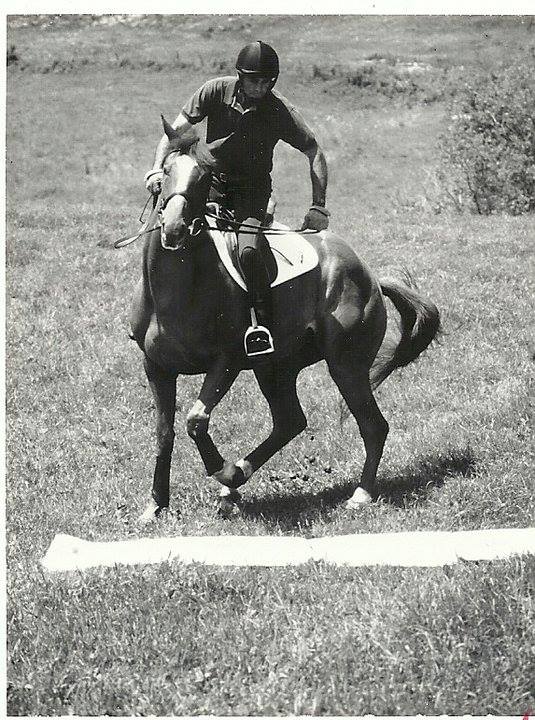Nervous horses are hard to ride horses. Hard to ride in that they are too reactive. They may not stand quietly to be mounted. They may not walk calmly. They may escalate the speed at all gaits. They may not handle downward transitions very readily. They may dance sideways in anxiety. They may leap into the canter. They may spook and wheel from all sorts of perceived threats.
It is difficult and frustrating to ride nervous horses. Many riders “fight fire with fire” by getting tense, rigid, abrupt and strong. They will try to force the nervous horse to obey, maybe by lunging and lunging and lunging, or by using stronger bits, draw reins, leverage rigs, spinning the horse in tight circles, withholding food and water, or by tying the horse for hours so “he can think about what he did wrong.”
The reason the horse is nervous is usually either because he is “high” and has pent up energy, is scared from past experiences, or simply because he is green and afraid of new situations, in discomfort, or some combination of all the above. I think some horses are born more nervous than others, and that is never easy.
Horses are not people. I repeat: Horses are not people. One more time: horses are not people.
To try and force a horse to be calm, short of drugging him, is futile, because it is impossible. You can force him to be tired or you can force him to “give in” to draw reins or long shanked bits, but those are not cures, only temporary fixes based on force—and force may well be why he is nervous in the first place.

© Tamarack Hill Farm
Most riders are not equipped with either the skill nor the patience to deal with highly nervous horses; and some highly nervous horses have been so emotionally damaged that they never recover even when correctly handled.
If you are in the situation of having to deal with a highly nervous horse the logical first step is to try to determine the source of the nervousness.
Is he simply too high, maybe too confined, fed too much grain, ridden too little?
Is he afraid? If so, afraid of what?
Is he green?
Only when you can figure out the source or sources of the nervousness can you begin to effect some possible cures.
One thing NOT to do is fall back on that anthropomorphic “he is being bad” cop out. Horses are not people. I repeat: Horses are not people. One more time—horses are not people.
Until you can fully understand that truth, you are not yet ready to train horses.
About the Author
Named “One of the 50 most influential horsemen of the Twentieth Century” by The Chronicle of the Horse, Denny Emerson was elected to the USEA Hall of Fame in 2005. He is the only rider to have ever won both a gold medal in eventing and a Tevis Buckle in endurance. He is the author of “How Good Riders Get Good“, and continues to ride and train from his Tamarack Hill Farm in Vermont and Southern Pines, NC.




 March 11, 2016
March 11, 2016 






















